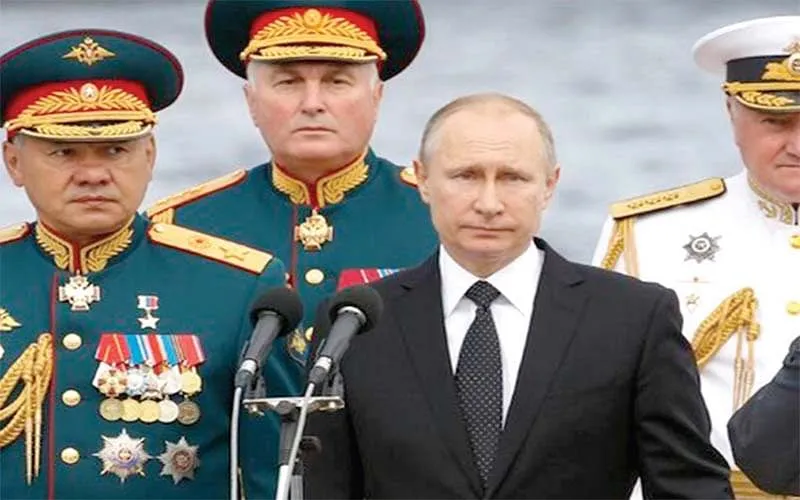Global attention is focussed on tensions over Ukraine, with Russia on the one side and on the other the US and its NATO allies. The US and the UK especially continue to repeatedly warn the world that a Russian military attack on Ukraine is imminent. They are pointing to more than a hundred thousand Russian troops massed along the Ukraine-Russian borders as proof of its intentions.
As I write these lines the US is also denying that Russia is following up on its announcement that it is withdrawing part of its troops from their forward positions. On his part Russian President Vladimir Putin has dismissed US and NATO claims as fictional. Putin has maintained though a firm position on Russian security interests which, according to him, will be severely compromised if Ukraine joins NATO. He has therefore insisted that Ukraine and NATO should not take such a step. On the other hand the US is asserting that it is the sovereign right of states to join alliances as they chose.
The fundamental issues raised by this crisis go beyond Ukraine for they concern the nature of the international order itself. Theoretically the global system is based on equality and independence of sovereign states. In reality, however, all countries are not equal for some are more powerful than others and powerful states do not hesitate to give primacy to their own rights at the expense of weaker states. That has been so in history and is today too. Indeed, since 1945 the principal organisation of the world—the United Nations—itself carries this contradiction between theory and reality at its core.
Article 2 (1) of the UN charter declares “The Organisation is based on the principle of the sovereign equality of all its Members”. Yet the Security Council which is responsible for the maintenance of international peace and security has only five states –the United States, Russia, China, the United Kingdom and France—as its permanent members. The permanent members have the right to exercise a veto over any Council decision to protect their interests. This means that their interests have been given primacy over that of all other states though the Organisation proclaims the principle of sovereign equality of all member-states.
The permanent members are the victors of World War 2 and since the end of that war in 1945 the capacities and power of the permanent members has not remained constant and a few other countries, including India, are now asserting their right to become permanent members. While the present permanent members say that they are open for changes in the structure of the Security Council none of them is willing to give up its veto powers nor allow any other country even if it becomes a permanent member to have veto powers. This indicates that the reality is that states will be ever willing to abandon principles when their interests are at stake. Ironically the principal powers of the world always cite the principle of sovereignty of states when it is in their interest to do so and ignore it when it suits their interests.
This is being seen vividly in the Ukraine situation as well. The country’s constitution was amended in 2019 to endorse a commitment for it to acquire memberships of the European Union (EU) and NATO. On the principle of sovereignty of nations this is a legitimate aspiration. However, ever since some political forces in Ukraine showed an interest in EU and NATO around two decades ago, Russia began warning both NATO and the country against such a move. Indeed since the demise of the Soviet Union in 1991 EU and NATO began to gradually make former Warsaw pact countries as members. Russia did not like the development but could not stop it.
In the case of Ukraine it drew a clear red line and demonstrated its will by taking Crimea which was a part of Ukraine by force in 2014. Crimea has a complex history as part of the Russian empire and later as part of the Soviet Union. It has a majority Russian speaking population and a somewhat distinct personality even when it was with Ukraine. Russian speakers also make up almost half the population of the eastern areas of Ukraine. They aspire to join Russia just as the Russian speakers of Crimea have supported its amalgamation with Russia. The West rejected Russia’s Crimean move but as it was a fait accompli it could not alter the ground situation. The removal of Russia from the G8 group and getting the UN General Assembly to reject the Russian move did not really matter to Russia. Now by warning that Russian moves will invite a major response the West is signalling that it will take actions that will hurt Russia and cause worldwide economic turbulence it is hoping that it will compel Putin to pull back.
Russia seems determined to extract a commitment from Ukraine that it will not join NATO and from NATO that it will not take in Ukraine. Both cannot give a formal undertaking as Russia wants. For them it is question of sovereignty though for both there are also security issues involved for by hemming in Russia advantages in the security sphere will accrue. Russian actions are purely based on its security interests. The reconciliation of these fundamentally contradictory positions constitute acid tests for diplomacy.
The way forward lies through abandoning national egos and seeking pragmatic solutions which secure security interests while preserving sovereignty. The question is if either side is willing to look for a practical resolution of a very difficult matter.
Disclaimer: The views and opinions expressed in this article are the personal opinions of the author. The facts, analysis, assumptions and perspective appearing in the article do not reflect the views of GK.







